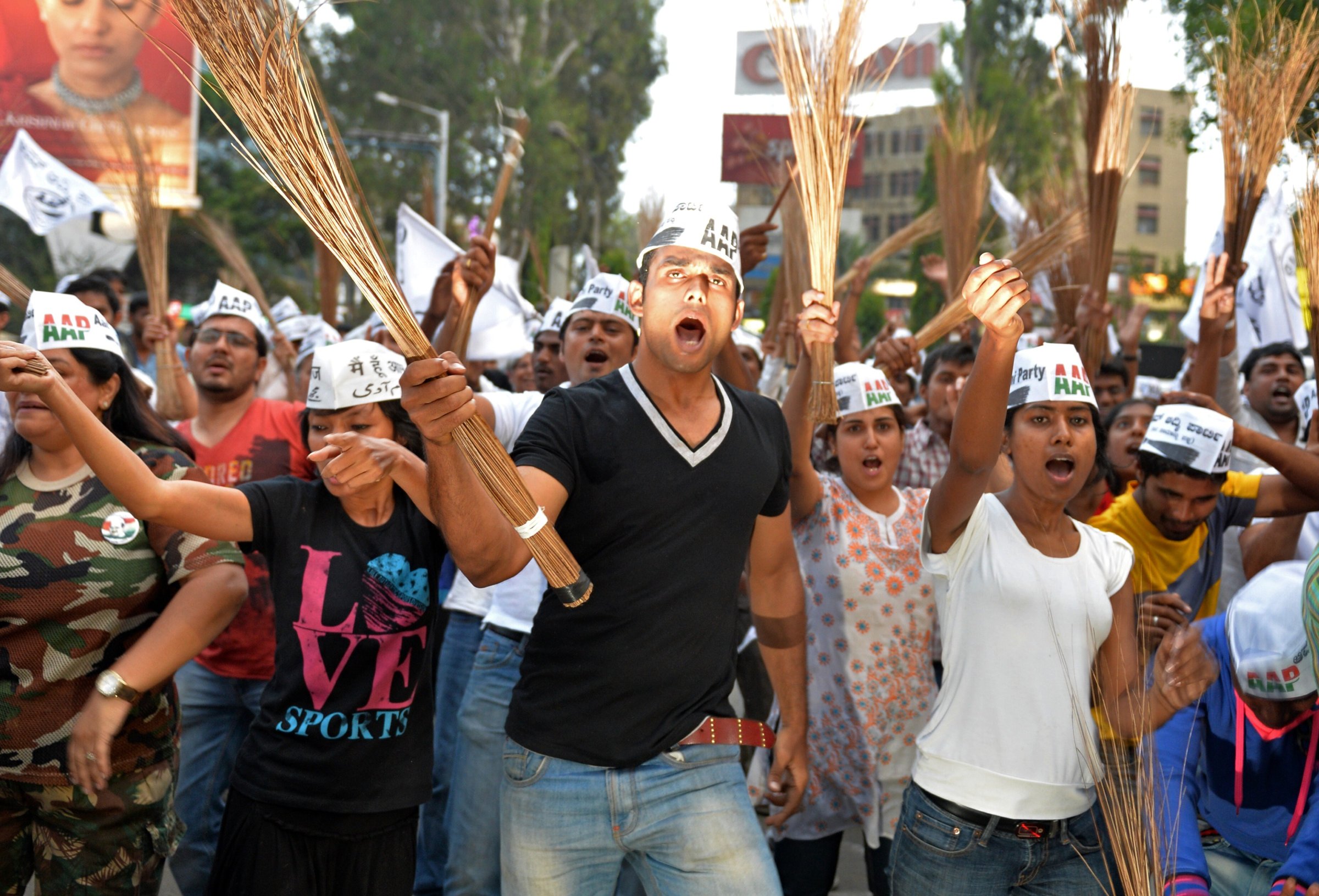
It’s the day before Good Friday, and many city dwellers in the IT mecca of Bangalore are getting ready to take advantage of the long weekend to escape the heat of the city. But at 7 AM in a polling booth in Whitefield, the city’s IT hub, some two dozen people line up, waiting to cast their ballot.
“Before, if voting was on a long weekend, we would have stepped out of the city earlier to make the most of our holiday,” says Aditi Rao, a 29-year-old software professional. “Now we realize the value of our votes. We will head out after.”
That’s good news for the voting drive in urban India. Voters in Indian cities traditionally have low voter turnout, and Bangalore is no exception. Known for its young, upwardly mobile workforce, this should be the kind of place where it’s easy to mobilize voters to show up at the polls. But in 2009 national elections, the city’s voter turnout hovered around 45%.
The sustained apathy over several elections has prompted both industry and business groups in India to try to turn the situation around. This election will be different, says P.G. Bhat, a member of the electoral reforms commission of the Federation of Indian Chambers of Commerce and Industry (FICCI). “People are taking active interest in the electoral process, and that’s heartening.”
Commercial groups like FICCI have worked hard this year to address the issue of urban voter apathy across the nation, says S.Y. Quraishi, former Chief Election Commissioner of India. “It has substantially helped in registration of voters. I hope it improves voter turnout too.”
In Bangalore, the turnout may be helped by the fact that the IT city finally has a few candidates that it can relate to. Congress’ Nandan Nilakeni is the co-founder of one of India’s best known IT companies, Infosys, which many young professionals have worked for and admire. Running against him is Anant Kumar, the five-time BJP incumbent, who not only represents the popular prime ministerial candidate Narendra Modi but has also promised the city hundreds of billions of rupees in special infrastructure grants if voted to power. Also in the mix is a former board member of Infosys, V Balakrishnan, who is running with the anti-corruption Aam Aadmi Party (AAP) on the platform of, among other things, fighting the city’s garbage mafia.
But voter apathy won’t disappear overnight. A quick tour of polling booths in South Bangalore’s Girinagar and Padmanabhnagar areas revealed that the voter lists were old and had glaring omissions. Several people who had turned up to vote couldn’t spot their names. “An urban Indian voter used to professionalism would not forgive such an oversight and would begin to distance himself from the electoral process,” says the FICCI’s Bhat.
Many IT employees come to work in Bangalore from all over India. Though they can register in their new city of residence, many complain they don’t have the option of mailing their ballot back to their home constituency. “I don’t live and work in my voting constituency, and so I have never been able to exercise my franchise,” says Sanjeet Manchanda, a consultant at ITC Infotech, who is from Punjab. “I feel like an alien in my own country on the vote day.”
How the vote is going elsewhere in the country may also be discouraging to young voters. AAP, the new political party led by Arvind Kejriwal, has been a popular among young IT workers, who helped its online campaign. But in Bangalore, some early AAP supporters are disillusioned with what is shaping up to be nationwide showdown between Congress and the BJP, and say they will not vote at all.
“I am let down by the fact that there is a Modi wave in this country,” says Durgesh Gurnani, an employee of Oracle Financial Services and a registered voter in South Bangalore. “After all the work we did for AAP, we didn’t see any concrete results.”
More Must-Reads From TIME
- The 100 Most Influential People of 2024
- Coco Gauff Is Playing for Herself Now
- Scenes From Pro-Palestinian Encampments Across U.S. Universities
- 6 Compliments That Land Every Time
- If You're Dating Right Now , You're Brave: Column
- The AI That Could Heal a Divided Internet
- Fallout Is a Brilliant Model for the Future of Video Game Adaptations
- Want Weekly Recs on What to Watch, Read, and More? Sign Up for Worth Your Time
Contact us at letters@time.com